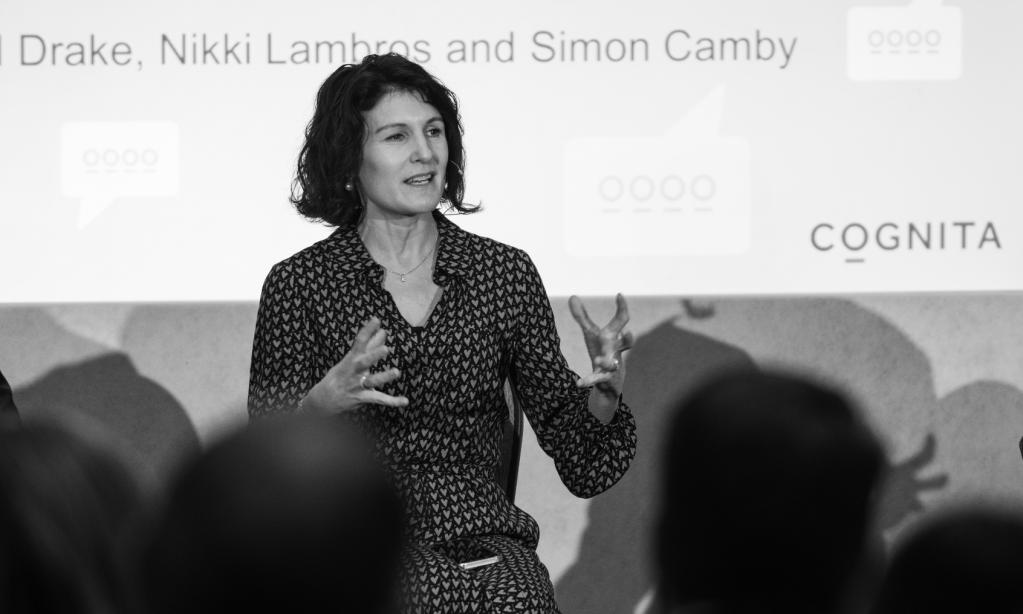March 26, 2023
My Leadership Journey: The Power of Significant Moments of Learning

To commemorate International Women’s Day, this instalment of our thought-provoking series features Nicola Lambros, a distinguished leader and our Director of Education for Europe. In this piece, Nikki shares her thoughts on some of the transformative learning experiences that have shaped her leadership journey.
The day my mother died, I thought my world had ended. I was 27 years old and 14 weeks pregnant with my first baby. My mum was my biggest inspiration, advocate, support structure and critical friend. I knew how lucky I was to have such a positive relationship with my mum and losing her to cancer was devastating. Whilst I was in the depths of grief, I couldn’t find any chinks of light. What I didn’t know was that this experience was going to be one of my most significant moments of learning.
We are all shaped by the events we experience in our lifetimes. Our response to these events often determines whether the experience has a positive or negative impact on us and our development as an individual. Quite often, these events can be transformational especially if we use them as an opportunity to reflect and learn. I call these experiences significant moments of learning and I’d like to share a few more examples that have shaped me as a leader.
At the start of my leadership journey, I was working hard to establish a coaching culture in my school. This was important because coaching embeds a trusting and supportive ethos which in turn nurtures collective and individual efficacy. As part of this, I invited a friend who was an experienced coach and Headteacher (David) to run a coaching workshop with my staff. As David and I reflected on the day, he said to me, “One thing I learned very quickly was – always be aware of your impact on those around you. As a leader, the words you use, how you say them and the actions you take are all being watched and absorbed by those you lead.” This was a significant moment of learning for me. A year later, I was reflecting with my coach at the time about an incident in school that had created high emotions. She shared with me a short equation that immediately resonated with me. E+R=O. That is the Event plus your Reaction equals the Outcome. This was another significant moment of learning for me. I quickly realised that this short equation and David’s statement, when combined, were hugely powerful. Throughout my leadership journey, I have remained cognisant of the fact that my words, actions and reactions will shape the culture of my school, influence the behaviour of those around me and strongly influence the outcome of an event. I appreciate no one is perfect and there will be times when my reactions and actions could be better. But keeping these two ‘rules’ in mind and constantly reflecting on how I can improve my words, actions and reactions has certainly helped me to be a better leader, enabling me to continually grow and develop throughout my leadership journey.
As part of my MA in Educational Leadership in 2016, I had to complete a short piece of qualitative research which involved interviewing colleagues about what they felt effective leadership looked like. I found that the central themes within the interview data were: establishing and nurturing strong and positive relationships with others; establishing a truly shared vision; validating the views of others; and being ‘authentic’ i.e. ‘I’m not the expert’. This was another significant moment of learning for me. The results from this assignment have underpinned my actions as a leader ever since. Leadership is communication and relationships. You are not a leader if no one is following! People buy into most things if they know when and why things are happening. Every leader needs to value all people and little things – put people first always. Being available, approachable, and accessible is essential to build those strong, trusting relationships and to establish effective channels of communication. This is a vital aspect of effective leadership.
Leaving my first Headship was exceptionally hard for me, almost like a bereavement. I loved my school, but felt that I needed to take on another challenge and test my leadership in a school with a different culture and context. In my new role, my immediate challenge was the upcoming ISI BSO inspection that was due in three months, for which no preparation had taken place. Having assessed what needed to be done I sprang into action, establishing a number of working parties to distribute leadership and ensure effective collaboration. Very quickly, I realised my collaborative approach was not working. Staff complained of feeling overwhelmed and anxious. I had adopted a leadership style that was effective in my previous setting, but was not appropriate or effective in my new role. I quickly realised that I had not taken into account the context, culture, situation and needs of the staff in my new school and I needed to adopt a directive leadership style in order for us to achieve our collective goal. As soon as I did this, staff responded positively, gained confidence and we made great progress in our inspection preparation achieving double excellent in our inspection. This was a significant moment of learning for me. I realised that no single leadership style is appropriate for every context. The most effective leaders are able to adapt their leadership style to the people, the context, the situation and the goal to be achieved. Key to this is the ability to effectively understand the perspective of others; effective leadership is empathetic leadership. My leadership style now changes according to each situation, but my values of compassion, empathy, respect and kindness stay constant because I believe that no leadership style will facilitate sustainable change and positive impact without being human first.
So, what did I learn from the death of my mum? A few things. Firstly, the importance of human connection. So many of Mum’s friends recounted to me at her funeral how she had positively influenced them through her optimism, compassion, kindness and the fact that she made everyone feel valued. This was a huge inspiration to me. Secondly, I learned very quickly that wellbeing comes from within. We cannot rely on others to provide our wellbeing. Losing the person who had always been there to look after me made me realise that my mindset was the most powerful tool I had in my wellbeing tool bag. I have trained myself to see the opportunity in change, learn from challenge and failure, find the silver lining in the darkest cloud and keep a sense of fun, joy and awe in every day. Thirdly, I learned that we need to live life! Had Mum not died when she did, I would not have stepped out of my comfort zone to travel the world and experience life and leadership in five different countries. And finally, I learned that my family is everything. Experiencing loss made me a better person.
As I reflect on my leadership journey, I have come to appreciate how the significant moments of learning in my life, and my reactions to them, have shaped me as a leader, a wife, a mother and a human. We all have our significant moments of learning our stories to tell. What are yours?
